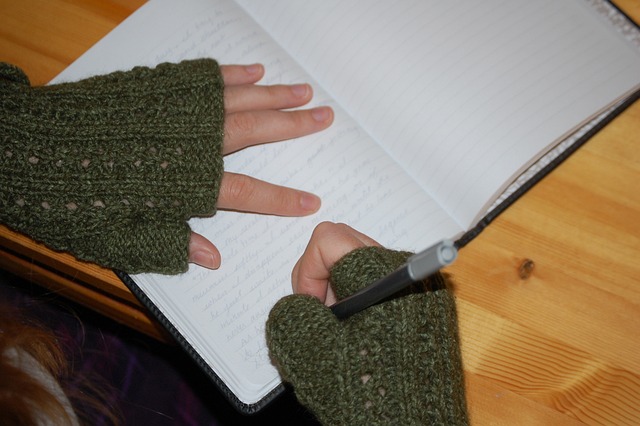Have you ever found yourself staring at a blank screen, fingers hovering over the keyboard, with a mind as empty as the page before you? Writer’s block, that dreaded affliction, can strike at the most inconvenient times, leaving even the most seasoned writers feeling frustrated and stuck. But fear not, because in this article, we will explore a variety of helpful ideas to banish that dreaded writer’s block and unlock your creative flow. Whether you’re a professional writer, a student struggling with an essay, or simply someone who loves to put pen to paper, these strategies will provide a much-needed respite for your writer’s weary mind. So, sit back, grab a cup of coffee, and get ready to unleash your inner wordsmith once again!
Contents
- Different Types of Writer’s Block: Identifying the Culprit
- Overcoming Writer’s Block: An Essential Guide
- Understanding the Creative Drought
- Effective Strategies to Unlock Your Creativity
- Explore New Writing Techniques to Overcome Writer’s Block
- Unlocking Creativity: Finding Inspiration in Unlikely Places
- The Power of Freewriting: Getting Your Words Flowing
- Embracing Imperfection: Overcoming Perfectionism in Writing
- Seeking Feedback and Support: Engaging with Writing Communities
- Frequently Asked Questions
- Concluding Remarks
Different Types of Writer’s Block: Identifying the Culprit
Writer’s block can be a frustrating experience for any writer, but did you know that there are different types of writer’s block that can hinder your creative flow? Identifying the culprit behind your writer’s block is the first step to overcoming it. Here are some common types of writer’s block and how to recognize them:
- The Perfectionist Block: Are you constantly striving for perfection in your writing? This type of writer’s block often manifests as an overwhelming fear of making mistakes or producing anything less than flawless. You tend to get stuck in an endless cycle of editing and revising, unable to move forward. Recognizing this type of block is crucial in order to let go of your self-imposed high standards and embrace the imperfect nature of first drafts.
- The Blank Page Block: Do you find yourself staring at a blank page, unable to come up with any ideas? This type of writer’s block is characterized by a lack of inspiration or creative spark. Your mind feels empty, and no matter how hard you try, the words just won’t come. Overcoming this block involves engaging in activities that stimulate your imagination, such as reading, brainstorming, or taking a break to pursue other hobbies. The key is to fill your mind with fresh ideas and allow your creativity to flow.
By recognizing the different types of writer’s block, you can better understand the underlying causes of your creative slowdown and take targeted steps to overcome them. Whether you’re battling perfectionism or grappling with a lack of inspiration, remember that writer’s block is a natural part of the creative process, and it can be overcome with persistence and patience. Keep exploring different techniques and strategies, and soon you’ll be back in the writing groove!
Overcoming Writer’s Block: An Essential Guide
Understanding the Creative Drought
Writer’s block, a phenomenon dreaded by every wordsmith, can be a frustrating roadblock on the path to creative expression. It manifests in different forms for different individuals, whether it’s the absence of ideas, lack of motivation, or the inability to put words on paper. However, rest assured, overcoming this temporary setback is entirely achievable with a little guidance and perseverance.
To overcome writer’s block, it’s important to first understand its root causes. It often stems from self-doubt, fear of failure, perfectionism, or burnout. Recognizing these underlying factors is the first step towards breaking free from the clutches of creative stagnation. Embrace the fact that writer’s block is a natural part of the creative process and that even the most prolific authors encounter it.
- Experiment with writing exercises to stimulate creativity.
- Take a break from your current project and work on something different.
- Seek inspiration from various sources such as books, music, art, or nature.
Effective Strategies to Unlock Your Creativity
Once you’ve gained insights into your personal writer’s block triggers, it’s time to explore strategies that can help you overcome them. Remember, each writer is unique, so finding the methods that work best for you may require some experimentation.
One effective approach is to establish a consistent writing routine. By setting aside dedicated time for writing and sticking to it, your mind becomes primed for creative endeavors. Additionally, consider incorporating activities like meditation or physical exercise into your routine, as they can contribute to mental clarity and focus. Furthermore, don’t underestimate the benefits of surrounding yourself with a supportive community of fellow writers who can offer encouragement and feedback.
- Cultivate a conducive writing environment that inspires you.
- Embrace imperfections and allow yourself to write freely, suspending self-judgment.
- Break your writing tasks into manageable chunks to avoid feeling overwhelmed.
Explore New Writing Techniques to Overcome Writer’s Block
Writer’s block is a frustrating hurdle that all writers face at some point in their creative journey. It can feel like hitting a wall, leaving you staring blankly at a blank page. Fortunately, there are various writing techniques you can explore to overcome this obstacle and reignite your creativity. Here are some unique strategies to help you break free from writer’s block:
- Morning Pages: Start your day by writing three pages of stream-of-consciousness thoughts. This method, popularized by Julia Cameron, helps to clear your mind and warm up your writing muscles, preparing you for a more productive session.
- Word Association: Take a random word and brainstorm a list of other words associated with it. As you explore the connections between words, new ideas and inspiration can emerge, leading you down unexpected and exciting paths.
- Switching Perspectives: Step into someone else’s shoes and write from their perspective. Whether it’s a fictional character, historical figure, or even an inanimate object, this exercise can unlock your imagination and bring a fresh perspective to your writing.
By step rotation, elimination, or even combining these techniques, you can overcome writer’s block and rediscover your creative flow. Remember to embrace experimentation and allow yourself to make mistakes along the way. The key is to keep writing, explore new techniques, and most importantly, have fun with the process!
Unlocking Creativity: Finding Inspiration in Unlikely Places
Creativity is not limited to conventional sources; sometimes, the most unexpected places can spark our imagination. Embracing an open mindset enables us to explore uncharted territories and discover inspiration where we least expect it. So, where can we find this hidden well of creativity? Let’s set off on a journey and uncover some unlikely sources that can unlock our boundless imagination.
1. Everyday Life: Sometimes, creativity lies in the ordinary. From observing the hustle and bustle of a city street to witnessing the intricate dance of raindrops on a windowpane, the mundane can be a treasure trove of ideas waiting to be realized. Let the world around you become your muse as you find beauty and inspiration in the simplest of things.
2. Nature’s Wonders: Mother Nature has an exquisite way of stirring our creative senses. Whether it’s the vibrant colors of a sunset painting the sky or the tranquil melody of a babbling brook, immersing yourself in nature can effortlessly ignite your imagination. Take a leisurely hike, embrace the peacefulness of a forest, or simply marvel at the delicate intricacies of a flower. Allow nature’s majesty to wash over you and inspire endless artistic possibilities.
The Power of Freewriting: Getting Your Words Flowing
Have you ever experienced writer’s block, that frustrating feeling of staring at a blank page with no idea how to start? Well, fret no more! Introducing the magical technique of freewriting. This simple but effective exercise can help unlock your creativity and get your words flowing like a gushing river. So, sit back, relax, and let’s explore the exciting world of freewriting!
Freewriting is a powerful tool that allows you to tap into your subconscious mind and unleash your inner thoughts without any inhibitions or fear of judgment. It’s all about letting your thoughts flow freely onto paper or screen. Here’s how it works:
- Set a timer for a specific duration, say 10 or 15 minutes
- Choose a topic, a word, or a phrase to focus on
- Start writing continuously without worrying about grammar, spelling, or punctuation
- Don’t stop or censor yourself, even if what you write seems unrelated or nonsensical
- Keep your hand moving or your fingers typing, allowing the ideas to flow naturally
The beauty of freewriting lies in its ability to bypass the internal editor, the voice that often holds us back from expressing our true thoughts and ideas. By giving yourself permission to write without judgment, you create a safe space for exploration and discovery. Freewriting helps to silence your inner critic and encourages a fearless approach to writing. So, whether you’re an aspiring novelist, a student with an essay prompt, or simply looking to kick-start your creativity, freewriting can unlock the door to a world of unlimited possibilities. Give it a try and see your words soar to new heights!
Embracing Imperfection: Overcoming Perfectionism in Writing
When it comes to writing, the pursuit of perfection can be both a blessing and a curse. While it is natural to want your work to be flawless, the constant striving for perfection can often hinder your progress and creativity. Embracing imperfection in writing is not about settling for mediocrity; it is about recognizing that perfection is an unattainable ideal and instead focusing on growth, learning, and self-expression.
So how can you overcome perfectionism in your writing and embrace the beauty of imperfection? Firstly, it is crucial to understand that mistakes and flaws are an integral part of the writing process. Instead of viewing them as failures, see them as opportunities for improvement and growth. Give yourself permission to make mistakes and experiment with different writing styles, structures, and ideas. By doing so, you will discover your unique voice and style.
- Set realistic goals: Rather than aiming for flawlessness, set achievable writing goals that focus on progress and personal growth.
- Allow for imperfection: Accept that not every sentence or paragraph will be perfect, and that is okay. Let go of the need to constantly edit and polish.
- Gain feedback: Seek constructive criticism from trusted individuals or join writing workshops to receive valuable feedback and insight.
Remember, writing is a journey, and imperfection is what makes it beautiful and human. Embrace the imperfections, learn from them, and let your authenticity shine through your words. By letting go of perfectionism, you will find newfound freedom and creativity in your writing.
Seeking Feedback and Support: Engaging with Writing Communities
Engaging with writing communities can be an invaluable resource for any writer, whether you are a seasoned author or just starting your writing journey. These communities offer a platform to connect with like-minded individuals, share your work, and receive constructive feedback and support. Here are some reasons why seeking feedback and support from writing communities can greatly enhance your growth as a writer:
- Diverse Perspectives: One of the greatest advantages of engaging with writing communities is the exposure to diverse perspectives. By sharing your writing with others, you will receive feedback from people with different backgrounds, experiences, and writing styles. This diversity can provide you with fresh insights and alternative viewpoints, helping you refine your work further.
- Constructive Criticism: Writing communities foster an environment of constructive criticism, where fellow writers genuinely want to help you improve. As opposed to unhelpful negativity, you can expect thoughtful and specific feedback on areas that need improvement. This can range from issues related to plot development, character consistency, or even grammar and syntax. Such feedback can prove invaluable in honing your craft and elevating your work to the next level.
- Motivation and Support: When you engage with writing communities, you become part of a supportive network of fellow writers who understand the challenges and joys of the creative process. They can provide motivation during writer’s block or simply be a friendly voice for encouragement. Sharing your successes and setbacks with a community that genuinely cares can greatly boost your morale and keep you inspired to continue your writing journey.
Remember, engaging with writing communities is a two-way street. As you seek feedback and support, be prepared to reciprocate by providing input and encouragement to your fellow writers. By actively participating and contributing to the community, you can build long-lasting connections, improve your writing skills, and develop a strong support system that will accompany you throughout your writing career.
Frequently Asked Questions
Q: What is writer’s block?
A: Writer’s block refers to the creative slowdown or inability to produce new ideas or content when writing. It can occur at any stage of the writing process and can be frustrating for writers.
Q: What are some common symptoms of writer’s block?
A: Symptoms of writer’s block vary from writer to writer, but common signs include a lack of inspiration, inability to focus, feeling overwhelmed by a blank page, self-doubt, and procrastination.
Q: What are some possible causes of writer’s block?
A: Writer’s block can stem from various factors, such as stress, perfectionism, fear of failure, external distractions, lack of motivation, or simply a lack of fresh ideas. It can also result from inadequate planning or not allowing oneself to write freely without judgment.
Q: How can I overcome writer’s block?
A: Overcoming writer’s block requires trying different strategies to reignite your creativity. Some helpful ideas include:
1. Take a break: Step away from your writing project for a while. Engage in activities that relax and inspire you, such as walking in nature, reading, or practicing mindfulness.
2. Freewriting: Set a timer and write without any inhibitions. Allow your thoughts to flow freely, without worrying about grammar, structure, or coherence. This can help to loosen up your mind and generate new ideas.
3. Set realistic goals: Break your writing task into smaller, achievable goals. Completing these smaller tasks can provide a sense of accomplishment and boost your motivation.
4. Change your environment: Sometimes a change of scenery can stimulate creativity. Try writing in a different location, like a coffee shop, park, or library, to help get your creative juices flowing.
5. Use prompts or exercises: Utilize writing prompts or exercises to get your creative muscles working. This can help you focus on a specific topic or genre and kickstart your writing process.
6. Seek feedback or brainstorm with others: Sharing your ideas with others can provide valuable perspectives and constructive feedback. Join writing groups, workshops, or seek input from trusted friends or mentors to gain fresh insights.
7. Eliminate distractions: Turn off social media notifications, put your phone on silent, and create a quiet, dedicated writing space. Minimizing distractions allows you to concentrate solely on your writing.
8. Read or engage with other art forms: Reading books or exploring different art forms can help you draw inspiration and spark new ideas. Exposing yourself to various writing styles and narratives can help overcome creative blocks.
9. Embrace imperfection: Don’t be too hard on yourself. Remember that every great writer has faced writer’s block at some point. Give yourself permission to write poorly or make mistakes, as it is often through the act of writing that ideas begin to flow.
Q: How long does writer’s block typically last?
A: The duration of writer’s block can vary greatly. Some writers experience it briefly, while others struggle with it for weeks or even months. However, by employing various techniques and staying committed to your writing practice, you increase your chances of overcoming it more quickly.
Q: Is writer’s block a common experience among writers?
A: Yes, writer’s block is a common experience that many writers face at some point in their careers. It is important to remember that it is a temporary obstacle and not a sign of incompetence or lack of talent.
Q: Can writer’s block be prevented?
A: While writer’s block cannot be entirely prevented, establishing good writing habits and maintaining a healthy creative routine can help reduce its frequency and intensity. Consistent writing practice, seeking inspiration from diverse sources, and managing stress levels can all contribute to minimizing the impact of writer’s block.
Q: When should I seek professional help for writer’s block?
A: If writer’s block becomes persistent, severely affects your mental well-being, or significantly hampers your ability to write, it may be beneficial to seek professional help. A writing coach, therapist, or counselor can provide guidance and support to help you overcome the underlying issues causing your writer’s block.
Concluding Remarks
In conclusion, writer’s block can be frustrating but there are several helpful ideas to overcome it. Experiment with different strategies and find what works best for you. Keep writing and don’t give up!






